I adapted this essay from a longer talk I gave on Zoom.1 A former graduate student of mine, Allison Willey, was the moderator.
It was the Unending Conversation2 in action.
Allison was well-prepared for the gig and asked great questions that gave me a lot of room to expand on concepts I’d written about in Play All Night. They also allowed me to explore the story in some different ways.
As I put this post together, what really struck me is how Duane’s assembling of the Allman Brothers Band demonstrates a different side of his leadership of the band. Duane understood, at 22-years-old mind you, that in order to achieve the sound he had in his head, he had to subsume his own ego and be part of a larger whole.
This is pretty remarkable if you ask me.
Rather than form a band where he would be its out front star, he chose instead to gather musical partners who wailed as hard as he did. It was a clear goal that was easy to adhere to when the band was up-and-coming.
His intention from the get-go was to build a band that was a band in the truest sense of the word.
It ABBsolutely wasn’t all about Duane
Allison’s first question set the stage:
Duane Allman is obviously a huge part of the ABB, but tell us some more about the other members and why their contributions are equally as important to the sound and style of the band.
In the spirit of the Allman Brothers Band, I improvised the following answer (cleaned up for publication, natch.).
Something super-interesting about the name the Allman Brothers Band is the intention behind it.
It was meant to represent the band as a Brotherhood—not a band fronted by two siblings with the last name of Allman.
Let me back up a little bit
By early 1969, Duane was a hotshot lead guitarist who recorded at Muscle Shoals with a variety of artists. But he really made a name with scorching lead guitar on Wilson Pickett’s version of the Beatles’ “Hey Jude.”
That one solo gave Duane the opportunity to start his own band from scratch.
Initially the idea was to make him a solo star. Following the model of the Jimi Hendrix Experience, Duane would lead a power trio that emphasized a blazing lead guitarist.
Though he had the talent and personality to front such a lineup, he had no interest in following that path.
Said Dickey:
“Duane was too warm and personal for that. He needed a lot of other guys to get that full sound he wanted.”
Duane valued the collaborative power of making music with others.
Any musician will tell you that music should be greater than the sum of its parts; Duane believed this to his core.
But beyond that, Duane didn’t like the idea of anyone being elevated above the rest of the band musically. His aversion to flash is something his friends often remembered him talking about.
He admired bands where everyone’s contributions mattered equally. That was his model in forming the Allman Brothers Band.
Duane’s bandmates
By early 1969, Duane had gathered an impressive resume as a session guitarist and seasoned live performer. But he was primarily playing other people’s music.
He needed collaborators to create something truly unique, bandmates who would push him creatively, who he, in turn, could also push.
Berry Oakley
Duane had been courting bassist Oakley for months. They met in Jacksonville in 1968 following an Hour Glass gig and talked about music into the wee hours of the morning.
The two hit it off as kindred spirits.
They spoke about building an ideal band—a group of killers—the best players they could find. They sought to create something extraordinary.3
Berry, though, was already playing in a band called the Second Coming with another incredible lead guitarist, Dickey Betts, to whom he was intensely loyal.4
Jaimoe
By January 1969, Duane’s new band included Jaimoe (Jai Johanny Johanson) as one of its two drummers. Jaimoe had played with Percy Sledge, Joe Tex, and Otis Redding and went to Muscle Shoals to meet Duane on the advice of his mentor Charles Honeyboy Otis: “If you want to make money, go play with the white boys.”
But the moment he played with Duane, Jaimoe said, it stopped being about money and became all about the music.
The drummer was the first to sign on with Duane.
“I was in the band when it wasn’t no band.”
The Jacksonville Jam
Duane and Jaimoe left Muscle Shoals in February 1969 and with drummer Butch Trucks joined jam sessions Oakley and Betts hosted in Jacksonville at Willow Branch Park and Forest Inn.
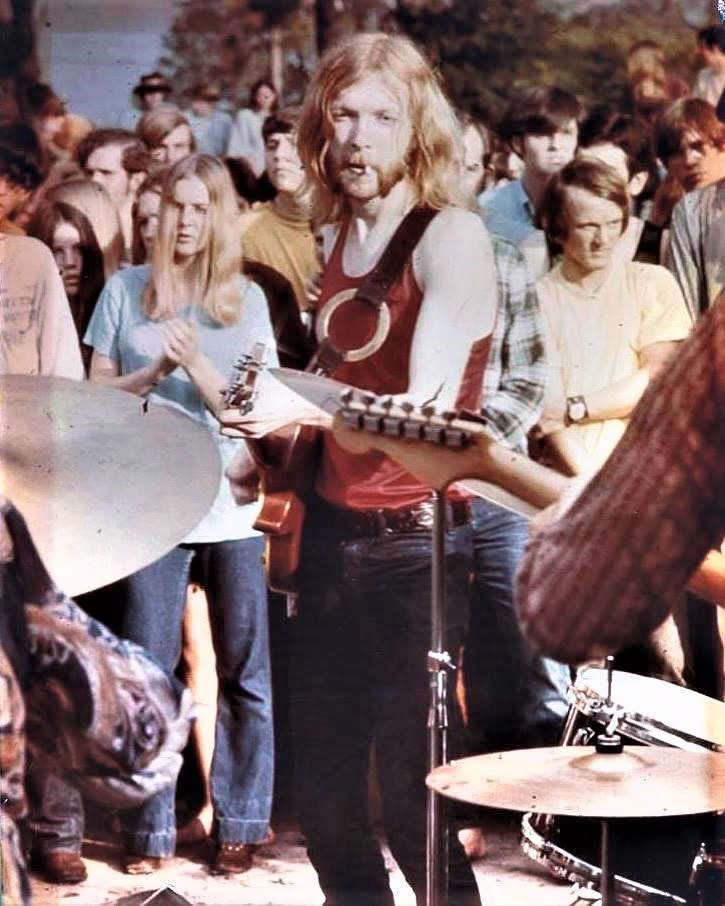
Duane had been recruiting Oakley for months now and was in Jacksonville to seal the deal.
Within a matter of weeks, Oakley and two more bandmates would sign on: Dickey Betts and Butch Trucks.
On March 23, 1969, Duane, Jaimoe, Berry, Dickey, and Butch set up in the Gray House, the Second Coming’s communal home. (The Second Coming’s Reese Wynans joined on keys.5)
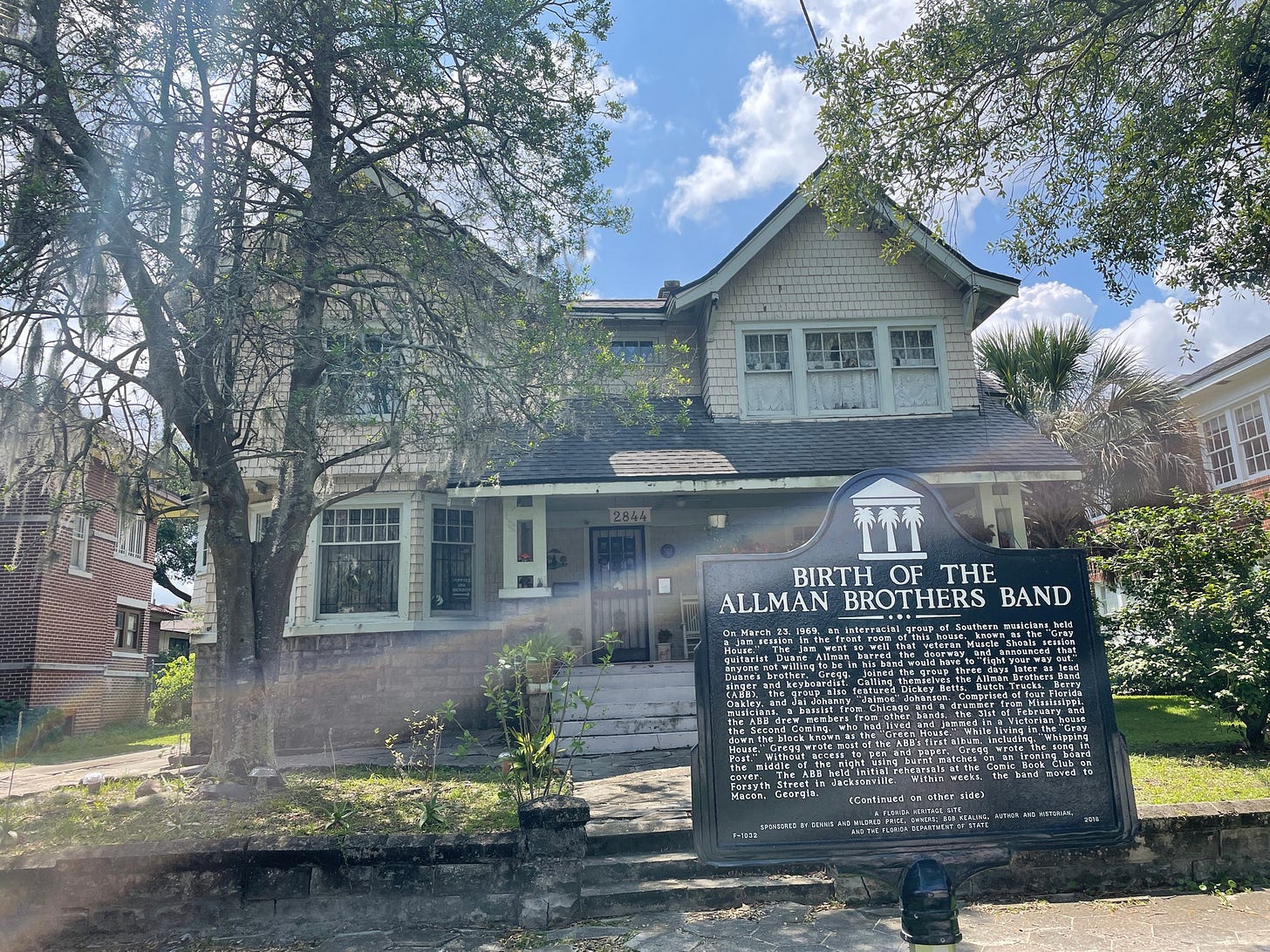
After the three hour jam, Duane announced:
“Anyone here not gonna play in my band is gonna have to fight your way out.”
Enter Gregg
The final piece of the puzzle was Duane’s brother Gregg, who was still in Los Angeles fulfilling the contractual obligations of Hour Glass—the band Duane had quit in a huff six months earlier.
Gregg was well-known to Duane’s bandmates as one of the top singers in the circuit. Everyone understood he was the final piece to the puzzle. The brothers were estranged, Duane angry at Gregg for returning to L.A. six months earlier for an unfulfilling contract.
It took some convincing for him to call his younger brother, but Duane always intended for Gregg to sing in his new band. Here’s a snippet of that story:
Gregg headed east tout suite
He arrived in Jacksonville on March 26, 1969 and walked into a pressure-packed situation.
They handed him the lyrics to “Trouble No More” by Muddy Waters, a song which they sped up a bit and added an Allman-esque instrumental breakdown.
Here’s more on that:
It’s safe to say Gregg nailed the audition.
The Allman Brothers Band
With Berry Oakley, Dickey Betts, Butch Trucks, Jaimoe, and Gregg, Duane assembled players with skills and spirit to match his own.
They were virtuosos who fused their individual influences into an original sound built on live improvisation and musical conversation.
🍄Jaimoe contributed jazz and, along with Duane & Gregg, rhythm & blues chops
🍄Butch Trucks was inspired by classical and folk music
🍄Dickey Betts loved country, bluegrass, and western swing
🍄Berry Oakley and Betts were into psychedelic music
All were steeped in the blues.
Betts described the band as developing like a Polaroid, with various elements slowly coming into focus. What quickly became clear was that playing together brought something special out of each musician.
The sound was something special.
“We knew what we now had,” Betts said of their sound.
Remarked Jaimoe, “It was less copying. We brought our own thing to it.”
Here’s that link in case you missed it above
I write about the Unending Conversation a lot. Here are two:
Here’s Duane’s take on that story: https://youtube.com/shorts/n5oP5qiG00Q
As two of the best guitarists in Florida, Betts and Duane had had several tense exchanges over the years though that didn’t seem to be an issue here.




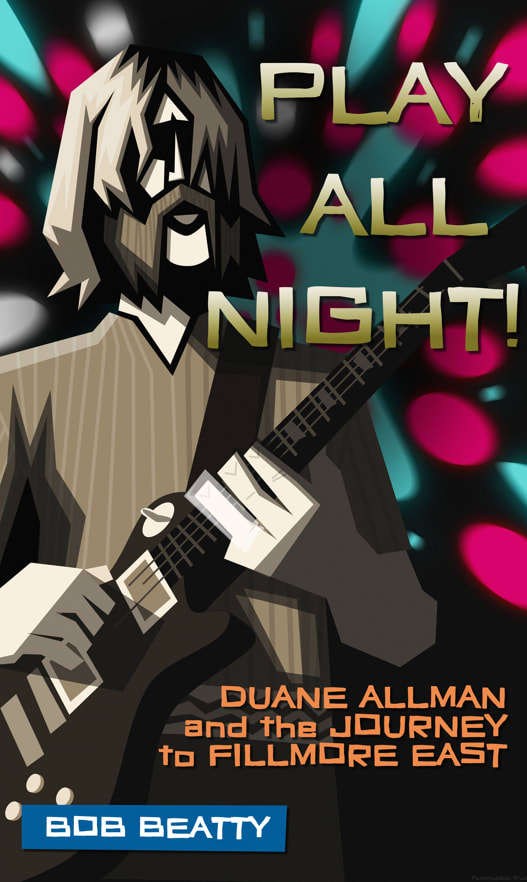
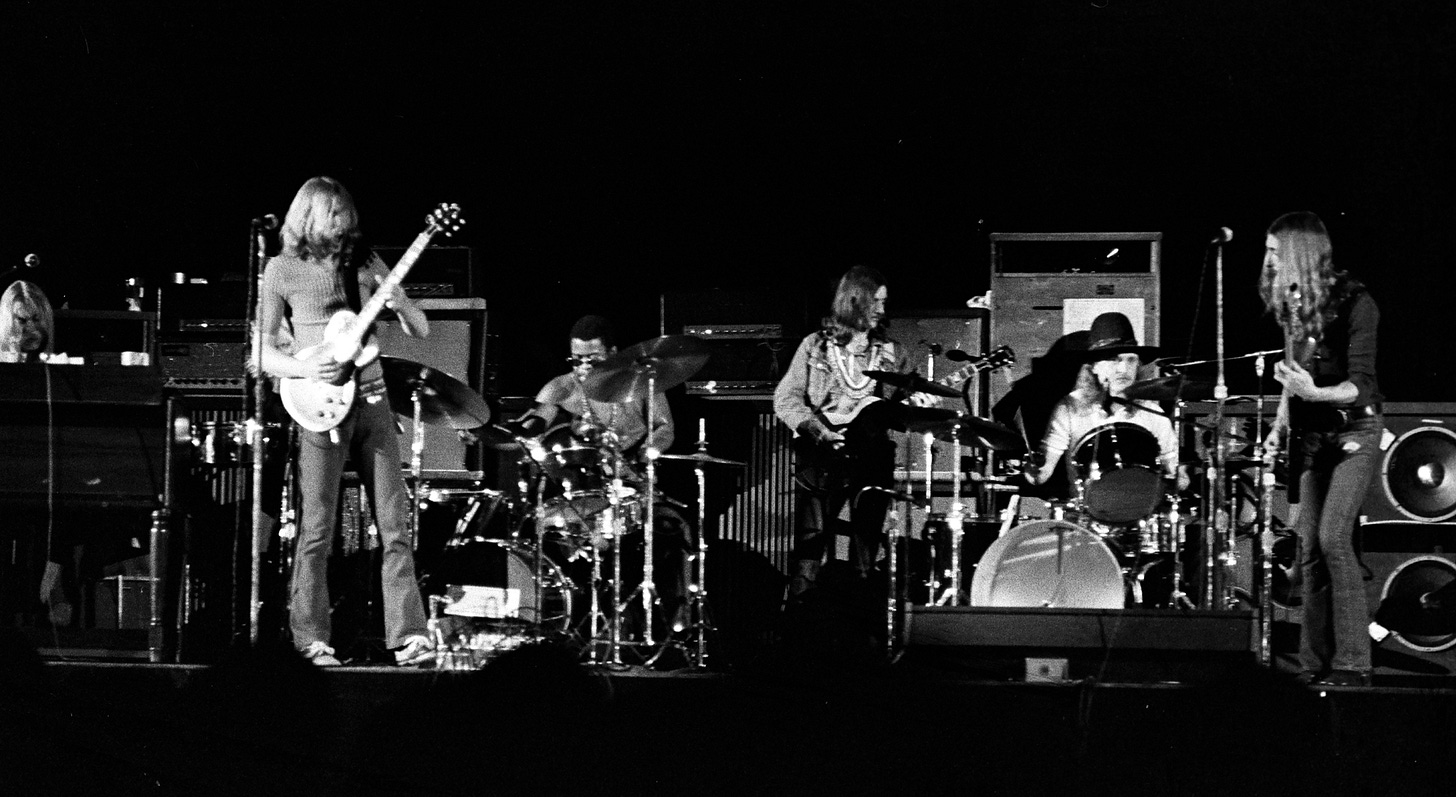
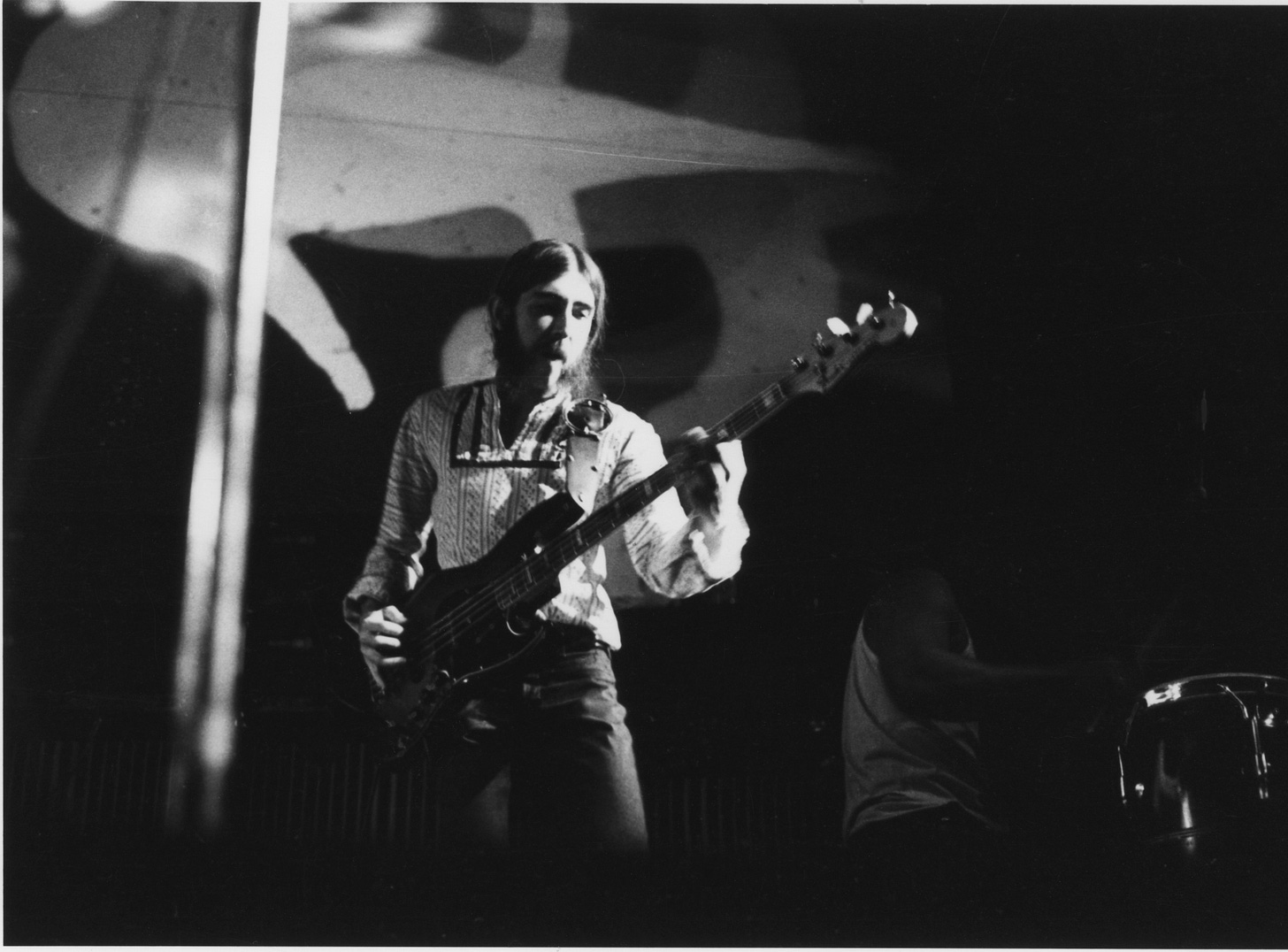
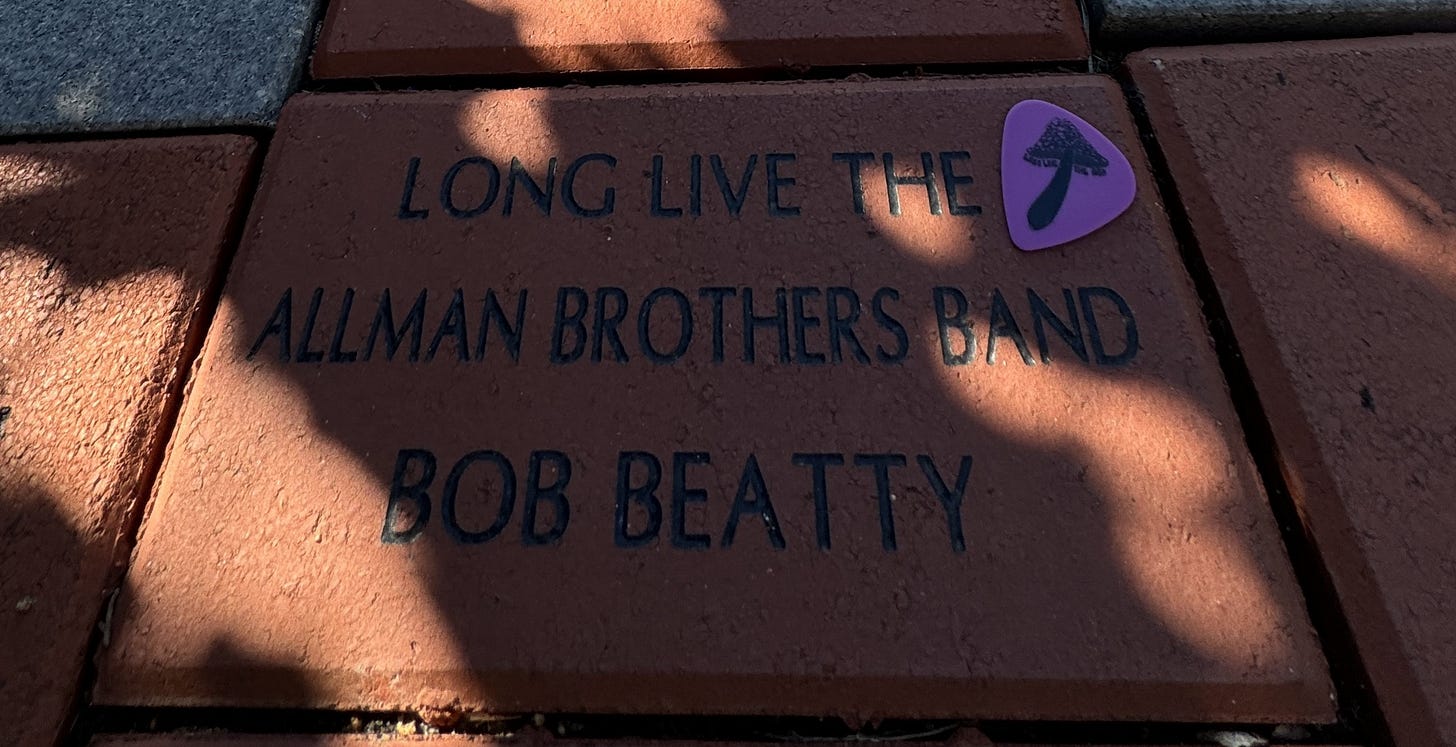
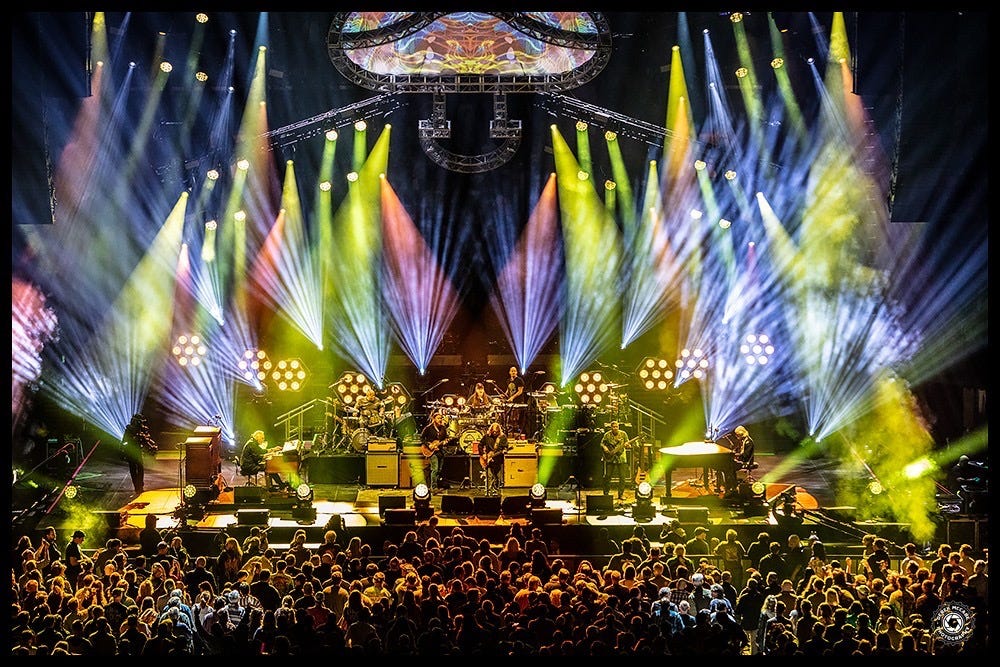
I was about 13 when I was hit between the eyes with the sledgehammer that was "One Way Out." Haven't yet recovered, nor even sought treatment.....
Good stuff! Not many bands have been so powerful in their original incarnation, yet survived and totally thrived through subsequent incarnations that included Warren Haynes, Lamar Williams, Allen Woody, with and without Dickey, Chuck Leavell, Derek Trucks, and spun off or led to Govt Mule, Sea level, Derek Trucks band, Dickey and Great Southern, Duane Betts, solo Gregg, Tedeschi-Trucks, etc. Duane Allman's spirit and influence courses through all of that which followed. That's the strongest testament to his leadership: he died, but the music never will.